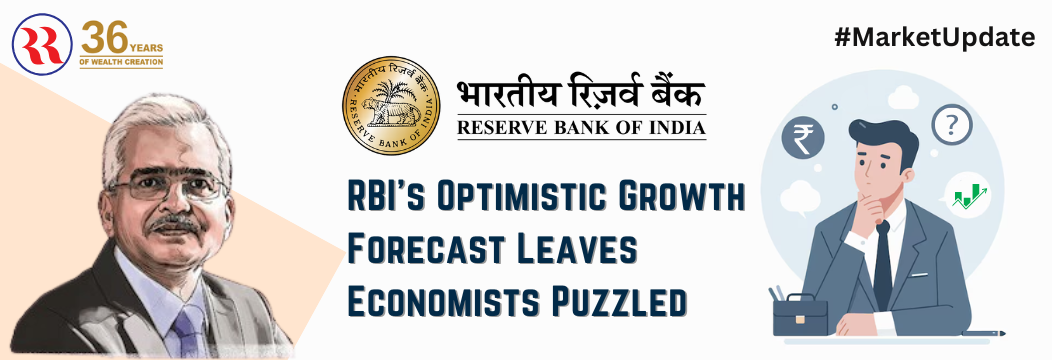The Reserve Bank of India’s optimistic growth projections for the world’s fastest-growing major economy are stirring both confusion and concern among economists.

The central bank has maintained its forecast of 7.2% economic growth for India in the fiscal year ending March 2025, despite recent signs of slowing activity. This projection is notably more optimistic than the 6.5%-7% growth estimated by Prime Minister NarendraModi's government. Meanwhile, investment banks like Goldman Sachs have revised their growth forecasts down to around 6.5%.
The RBI’s optimism is driven by its assessment that rural spending is strengthening and private investment is on the rise. However, economists express concerns over sluggish urban consumption and declining exports. They caution that if these issues aren’t addressed promptly, the RBI could risk maintaining a tight monetary policy, potentially further dampening growth.
Sluggish economic activity coincides with the RBI holding its key interest rate steady for nearly two years. Governor Shaktikanta Das recently stated that a rate cut now would be “very, very risky,” showing no urgency to follow global policymakers in easing rates. He emphasized on Friday his focus on ensuring inflation moves consistently toward the 4% target before considering any rate reductions.
Many economists believe that the RBI’s growth projections are overly optimistic, surpassing the typical margin of error seen around market forecasts. From car sales to coffee consumption and manufacturing, several economic sectors have experienced a noticeable downturn. India's factory activity, for instance, has been softening since July, despite a slight improvement this month. Additionally, passenger vehicle sales dropped for two consecutive months in September, and air travel saw declines in three of the four months since June. Prolonged weak demand for consumer goods in urban areas has also impacted the profits of some of India’s largest companies.
Festival Season Sales
The RBI anticipates a boost in demand during the ongoing festive season; however, economists argue this may fall short in driving sustainable long-term growth. The festive period, spanning three months and culminating with Diwali this week, typically accounts for 20%-30% of annual sales for many companies.
As the festive season continues, there is hope that Diwali will bring a boost in sales, but economists caution that this uplift may not extend over the coming quarters, potentially limiting its impact on sustaining long-term growth.
About RR Finance
An integrated financial services group, offering a wide range of financial products and services to corporations, institutions, high-net-worth individuals, and retail investors
Explore a wide range of investment opportunities with RR Finance
Disclaimer: The recommendations, suggestions, views, and opinions expressed by experts are their own and do not reflect the views of RR Finance. This blog is for information purpose only, not an investment advice.